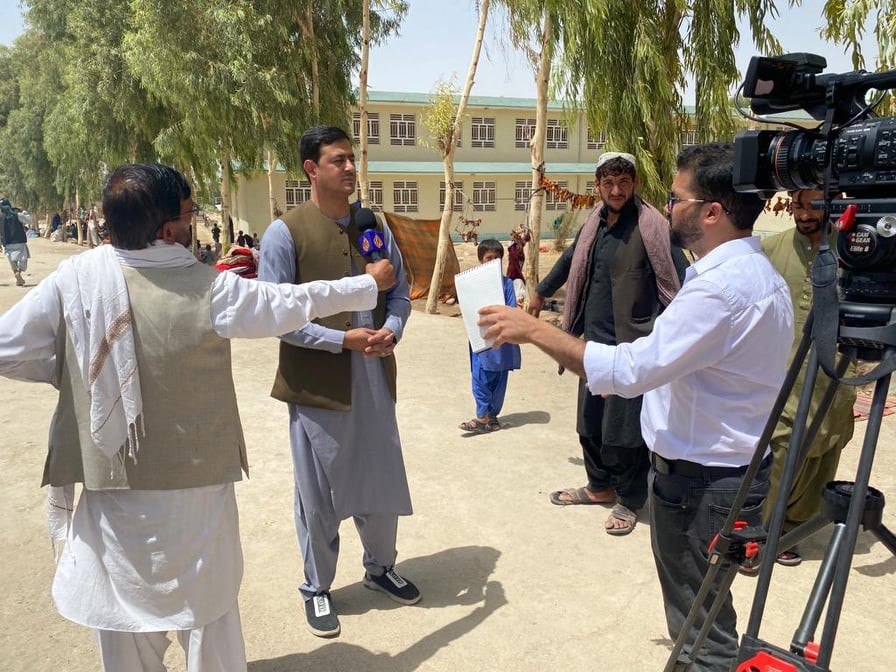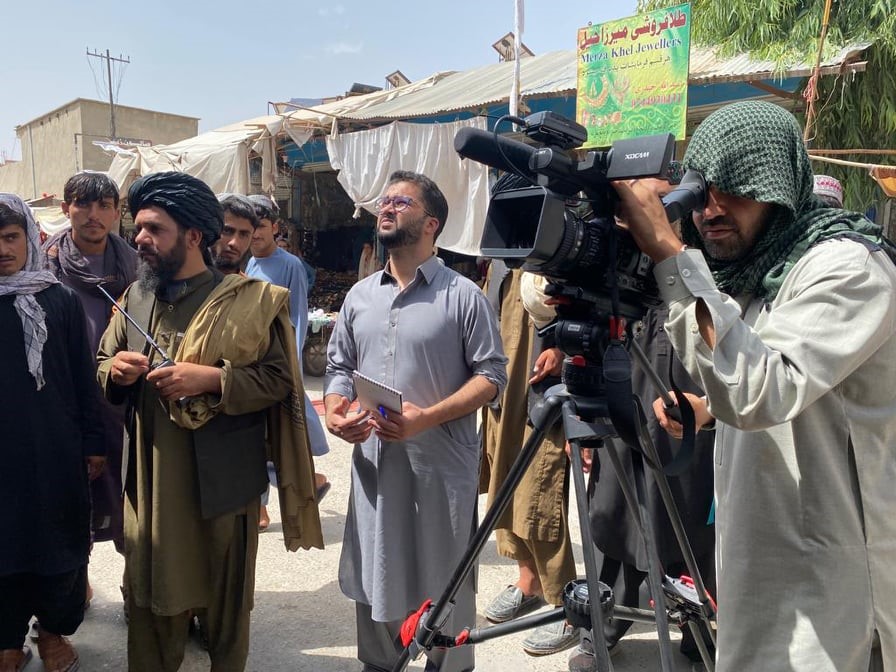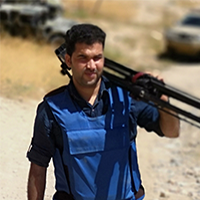4 minute read
Al Jazeera's correspondent in Afghanistan describes what it was like to report events during the recent Taliban takeover.
The fall of Kabul to the Taliban was - and still is - an extraordinary event.
No journalist can ever know for sure if or when something like this will happen while they are reporting from the field. I got to experience it on my fifth deployment to Afghanistan for Al Jazeera.
Of course, we journalists had an inkling something like this could occur. But I did not expect it to happen so quickly. I had been closely following the news of the country for some time but even those far more experienced than me in Afghanistan’s affairs were surprised by the rapid pace at which events unfolded.
The speed of the Taliban's takeover exceeded all expectations; within 10 days, the movement took control of all the states of the country - except for Panjshir - and entered Kabul.
Then began the collapse of the Afghan government's line of defence in the north, consisting of an estimated 20,000 government forces, as well as the collapse of a group of forces loyal to General Abdul Rashid Dostum, and other popular forces.
Hours of clashes on the outskirts of the city of Mazar-i-Sharif on August 14 prompted government forces and factions supporting them to flee to Uzbekistan. It was the last battle for the Afghan army.
'It seemed impossible to us, right there on the ground,
that the Taliban could enter the capital'
The Taliban then besieged Kabul, and we received news of the storming of its largest prison in the south, and soon afterwards the control of the "Bagram" district and its base, 50km north of the capital.
While we were reporting, it seemed impossible to us, right there on the ground, that the Taliban could enter the capital, as entrenched in the city – so we believed - were the toughest troops of the Afghan army, and backing them was a president vowing to fight and refusing to surrender. Even more threatening it seemed, were the stern American warnings of confrontations if the Taliban dared to enter Kabul.
In the midst of all this commotion, however, we started to notice an increase in the frequency of American helicopters transporting people between the American embassy and the airport. Then, news reached us that Taliban fighters had advanced and gained control of all access routes into the capital. Our live coverage began.
Events moved fast, and viewers were eager for reliable details that were scarce, but an official statement was released by the Taliban, announcing that it had instructed its forces to enter the capital to provide "security". It was a declaration in writing of their intent to enter Kabul.
The scenes of Taliban leaders entering the presidential palace on August 15 - Al Jazeera was the only TV channel to broadcast live - were iconic, commemorating a historic event. We were in the right place, at the right time.

Here are a few things I feel I have learned, first-hand, from this experience:
Be careful not to miss an important event
Keep yourself well informed by reading and watching every news source possible and diversify your news sources. This is particularly important considering the polarisation of the media and the propaganda and counter-propaganda machines. As a journalist, you must take care that you do not slip into the trap of repeating propaganda without realising it. At the same time, you should be acquainted with the narratives of the various parties on the ground and what supports these narratives
Don't be steered into following a particular narrative by the speed of events
On a normal news day, there is enough as a news story develops for the reporter to take some time to think about the news and its repercussions and what it means in the context of the situation. So the reporter has enough time to consider how the event should be framed. However, during live coverage, reporters must react to an event the moment it occurs. Any miscalculation of the importance of the news and its aftermath can result in the reporter being steered towards a particular narrative without realising. The use of neutral terms when describing an event and the use of relative clauses and objective terms is a good way to describe the situation accurately.
Put yourself in your viewers' shoes, and ask yourself: What do I want to know?
In a complex situation like the current Afghan crisis, it can be difficult for the viewer from afar to understand the nuance of what is happening. The reporter must act as the medium that explains the scenes of a highly complex story. Picking out the details to delve into will not be easy; but just dumping all the information you have gathered does not necessarily serve the message and does not benefit the viewer, so the issue will need to be simplified.
Considering the questions that your viewer would like answers to will help you to focus the message, but at the same time, you must remember that your words are critical as they give the images life and context to enable the viewer to construct the bigger picture in his or her mind.
Don't be afraid to admit that you don’t know all the answers
Sometimes the news presenter asks you a question about something that just happened but you haven't found out the details yet. It is fine to admit live on air that you don't know. Of course, most channels have procedures in place for coordinating questions before appearing on air in normal circumstances to avoid embarrassment. But breaking news coverage has its limitations, and curiosity can lead the presenters to ask questions that the reporter does not have the answers to. At this point, it is okay to use the most hated phrase on TV: "I don't know."
Monitor the past behaviour of all parties involved
In every news story, there are at least two parties involved; most of the time there are multiple parties, with different objectives and capabilities. Examining the behaviour of these parties over longer periods of time allows for a deeper understanding of the developments in their behavior during crisis moments and leaves room for objective analysis. News that comes via official statements from a party must be shared, but an eye must be kept on the behaviour of the parties on the ground as well.








































